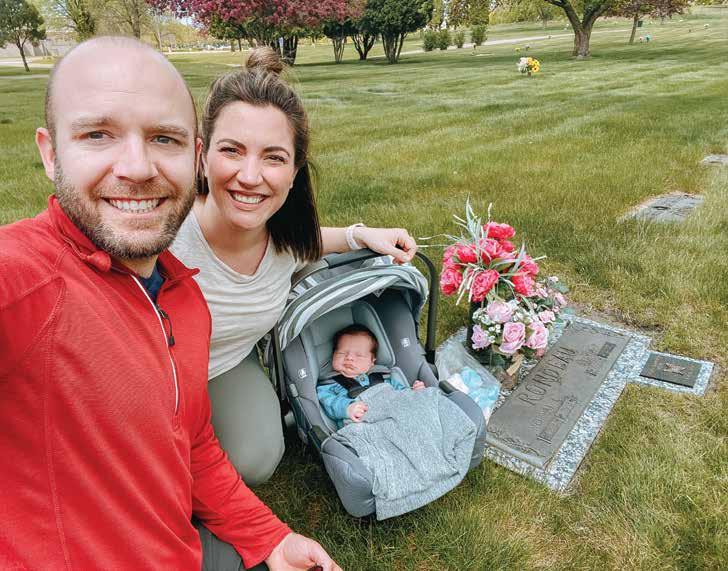
4 minute read
Raising Awareness: How to live when your baby doesn't
By Molly Ovenden
Whenan expectant mother loses a child through miscarriage or in early infancy, the pain is indescribable. Not only is it the loss of family and future plans hoped for, but it can also bring feelings of hopelessness and shame about who she is as a woman or a mother. The emotional pain can be so overwhelming that she doesn’t feel she can talk about it. As a result, many women suffer in silence.
But it doesn’t have to be this way.
In 1988, President Reagan named October “Pregnancy and Infant Loss Awareness Month.” Recognizing the unique grief experienced provides opportunities for others to show support for those grieving and in remembrance.
Katie Quade and Carrie Straabe have made their own paths through grief. They’ve continued living without forgetting their little ones who didn’t.
Duluth to Australia to Balanced Roots Retreats
Katie Quade, born and bred Duluthian and married to
Adam, lives in Golden Valley, Minnesota with her husband and their infant son, Gabriel.
Katie and Adam traveled to Australia with a sense of adventure, longing to experience a different way of life. Australia was filled with slowliving activities: visiting local markets, doing yoga, beach time. Quade realized life didn’t have to be so busy.
“I felt quiet for the first time,” she said.
When they returned to Minnesota in summer 2019, Quade wanted to make some life changes, so she started meeting with a business coach. After a few months back home, she also became pregnant.
In February 2020, Quade launched her business, Balanced Roots Retreats, implementing beloved aspects of an Australian slower pace, to help women find inspiration to live their greatest lives.
Losing Sylvia
creating connection and change women
Several weeks into her pregnancy, Quade began bleeding, so she visited the hospital for an ultrasound. Bleeding continued sporadically. Doctors assured her it was normal, until it wasn’t.
At the start of the pandemic shutdown in America, additional fear surrounded Quade as she waited to deliver her baby at 18 weeks, only to welcome and say goodbye to her daughter Sylvia, who was born asleep.
Quade’s first day home from the hospital was also her first Mother’s Day. It didn’t seem fair.
“I felt really empty,” Quade said.
What happens next?
Feeling called to help women and entrepreneurs, she wanted to facilitate events to help women slow down, find peace and quiet, and reevaluate their focus in life, and now, process losing a child.

“Generating awareness for baby loss and miscarriage is something that needs to be done,” Quade said.
Her Catholic faith and spirituality have been a solid foundation of support to help her process her loss and find connection with others.
While Quade found support by listening to others’ authentic stories and sharing hers, she encourages women who’ve also suffered loss to find what works for them and for their families.
When Quade and her husband discovered she was pregnant again, she was grateful for the possibility. While this pregnancy wasn’t without its scary moments, the Quades welcomed their son, Sylvia’s little brother, Gabriel, into the world on April 29, 2021.

For Balanced Roots Retreats experiences or Life By Design courses, visit www.balancedrootsretreats.com. For details about the Quade Family, visit Katie’s blog or social media via Hey, It’s Katie Q.
Meeting Faith
Carrie Straabe lives in Coleraine, Minnesota with daughter Isabelle (Bella), 12; son Carter, 5, and horse Otis, 28, reading and running in her free time.
When Bella was about 9 months, Straabe discovered she was pregnant again. About three weeks into her second trimester, Straabe developed a subchorionic hemorrhage. There was a possibility of miscarriage, but the tear decreased, so it seemed OK.
Baby Faith had normally been active, but the morning of her scheduled C-section, she was quiet. When she didn’t feel much movement, she worried. The nurse tried to find her heartbeat.
“I felt normal the night before,” Straabe said.
What proceeded happened quickly in a blur. Straabe saw the radiologist, and then went to delivery. They opted for a natural birth which went smoothly. But on April 17, 2010, Faith was born with the umbilical cord around her neck.
“She looked like she was sleeping,” Straabe said.
Processing grief
Straabe didn’t want to talk about what happened. She
Continued on page 28 wanted to figure it out.
Her aunt had shared about her own miscarriage. This was the first person Straabe knew directly who’d lost a child, and talking to her helped, but Straabe was still in shock.
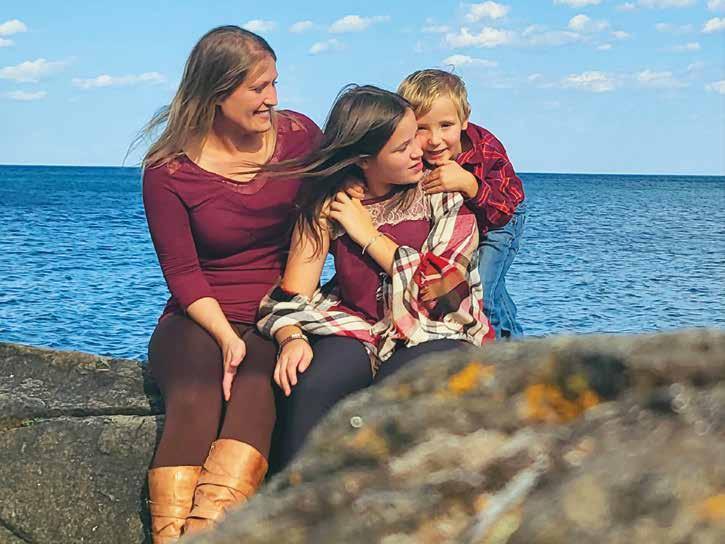
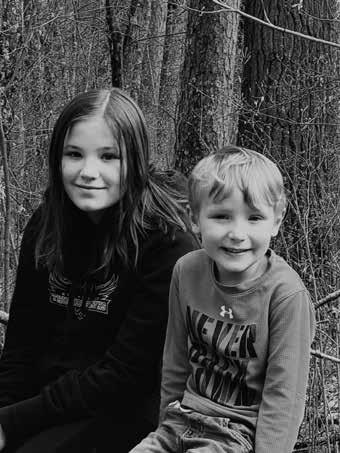
“I can’t believe this happened to me,” she said.
She knew she was responsible for caring for this baby’s life, but she had lost it.
“I felt shame,” Straabe said.
She encourages other moms to forgive themselves, to slow down to make sense of their broken hearts and accept they’re not to blame. Journaling helped, too.
Caring for family
Empty of the life she’d carried, the urge to care for someone compelled her to pour into others. In the beginning, Straabe found it helpful to be able to help her husband cope with losing their daughter.
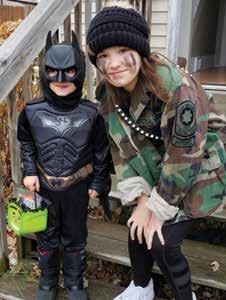
“What helped me the most was to take care of people, to be immersed in tasks,” Straabe said.
Straabe keeps Faith’s ashes on the mantle in remembrance.
She talks with her children about Faith in ways they can understand, each year celebrating her birthday with cupcakes.
Years later, her son Carter was a surprise. Worried about all that could go wrong, the memories of fear and grief from losing Faith flooded her mind. She lost weight, stressed over potentially losing him.
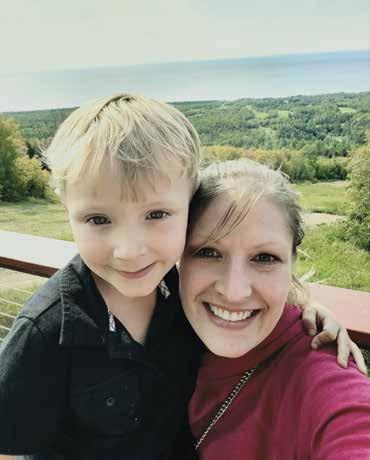
Giving birth to a healthy son helped how she felt about herself. She could carry a child to full term.
“You can lose a child and still go on and have a normal birth,” she said.
Helping your friend grieve
• Ask your friend how she wants to talk about her baby and say her baby’s name.
• Ask when the due date should have been and connect with her then.
• A text message or phone call check-in goes miles.
• Reach out on Mother’s and Father’s Days. Someone who has lost a baby is still a parent. D Molly Ovenden is a Duluth freelance writer.











